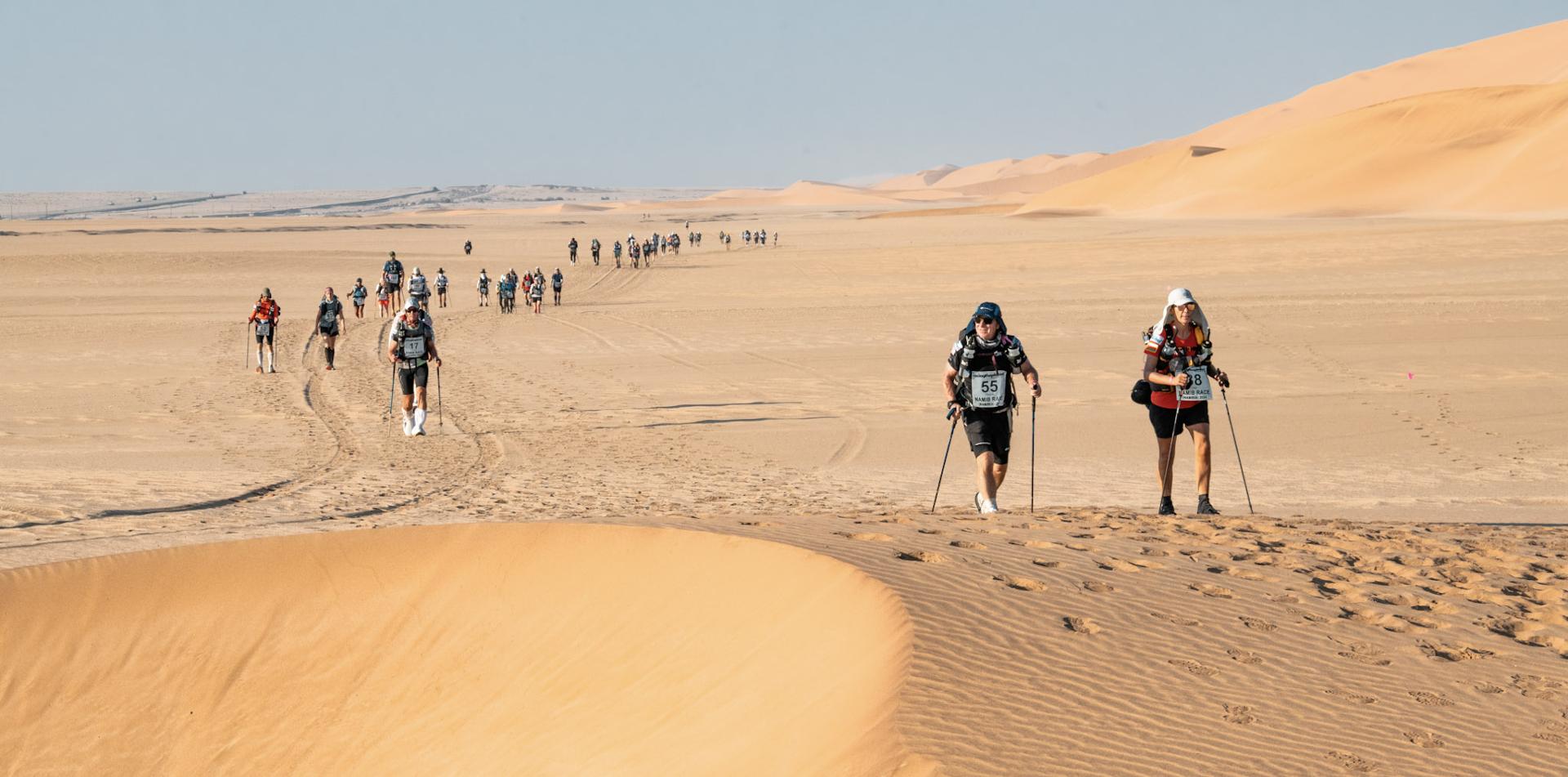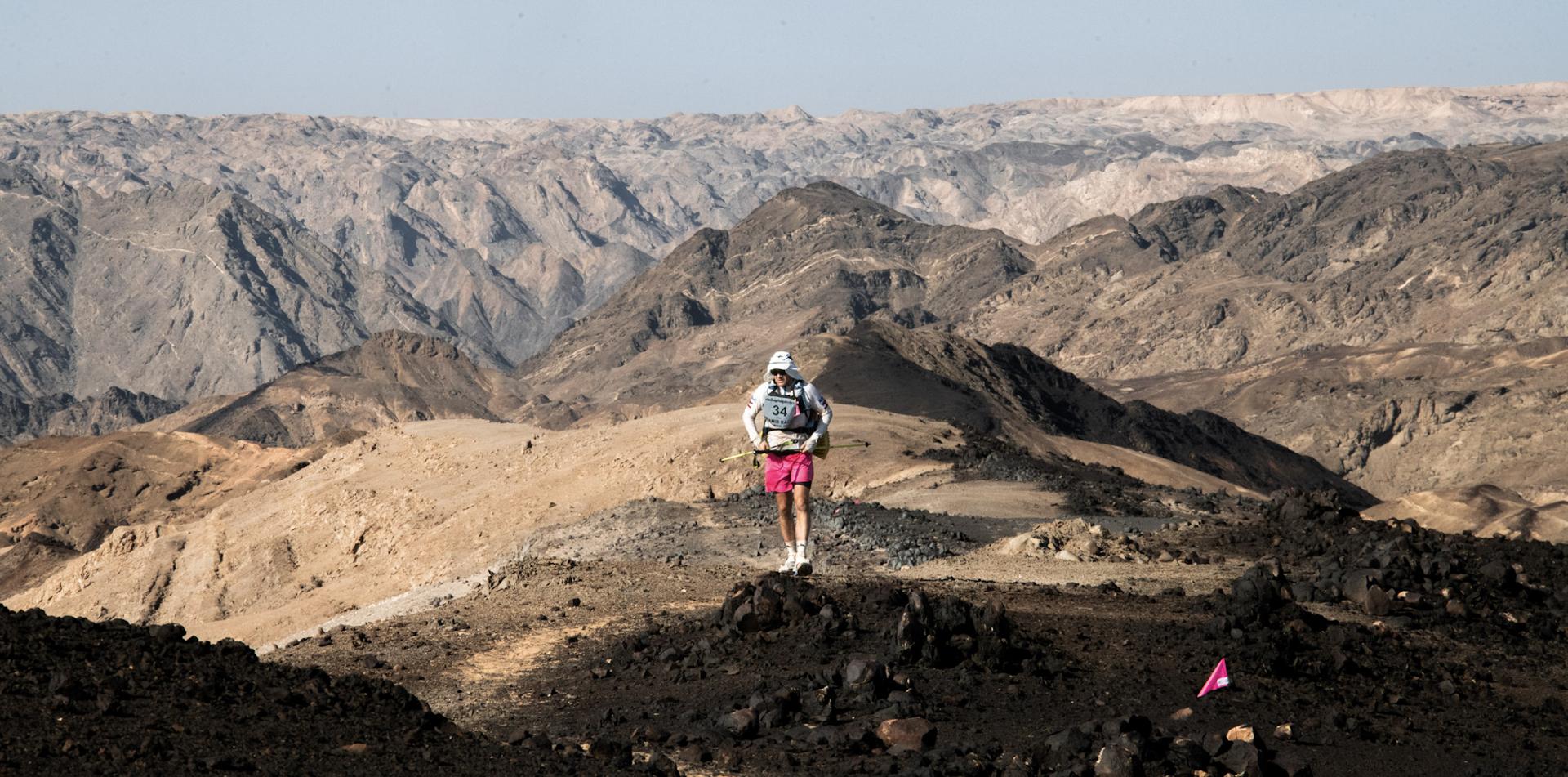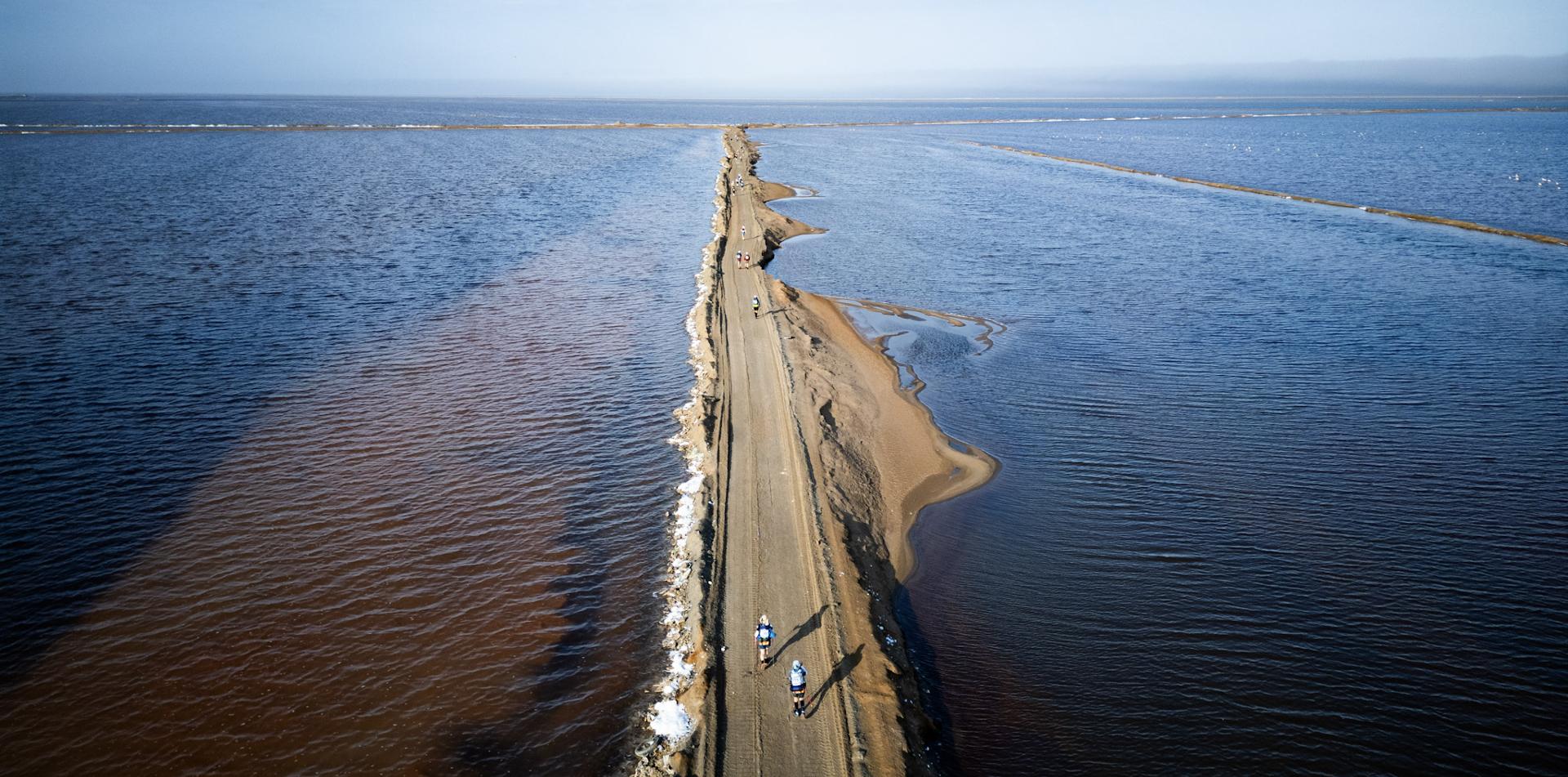RACE INFO

RACE INFO
Matthew Cavanaugh - Demonstrating You Can Live a Full Life After Donating a Kidney
What makes RacingThePlanet is the people! Everyone has a story and we like to highlight some of them.
Matthew Cavanaugh from Colorado is a military officer in the United States Army and a recent kidney donor who is set to complete the 4 Deserts Grand Slam in 2022. He is representing the National Kidney Registry to demonstrate that life after donation is not any less and that it really does only take one kidney to live a full life. In 2021 Matthew decided to donate one of his kidney`s to a stranger in Seattle. This kick-started a chain of donations that helped get another seven people off the transplant wait list. Matthew has always been a trail runner, annually completing the 6 day, 120 mile Trans-Rockies Run in Colorado, finish in the top few (3rd overall in 2021, 2nd before that) and hence his plan to prove that you can continue to live a full life and still run ultramarathons with one kidney. His story is shared in LA Times

I had fired every bullet and it wasn’t enough. On a black night in late spring 2003, west of Baghdad, I was a single lieutenant defending our cavalry squadron’s position. Insurgents advanced toward me; tracers lighted the air around me. I felt utterly, deeply alone. And then relief: When my life depended on it, someone came for me. The squadron’s response unit arrived and turned back the attack.
Eighteen years later, I paid that moment forward. I was the cavalry. I saved someone’s life and then some.
Not long after midnight on Sept. 15, I climbed onto an operating room table at Walter Reed National Military Medical Center. A surgeon made four tiny incisions in a vertical pattern on my abdomen’s left side and a 2.75-inch horizontal cut below the navel, large enough to remove my left kidney. Another surgeon packed it for shipment via plane to a recipient in Seattle. The terrific transplant team did its job in under three hours — my robot-assisted, laparoscopic nephrectomy was over by breakfast.
Kidneys matter. The two fist-sized organs filter dangerous toxins from your blood, sending the waste on to the bladder as urine. Unfortunately, when they fail, they often fail in pairs, and it’s common. One in three Americans is at risk for kidney disease, and more than 37 million Americans have chronic kidney disease (most don’t know they’re ill). Nearly 100,000 people, including 1,000 children, are on a waitlist for a transplant. Last year, 5,005 of them died waiting, hooked up to dialysis machines for hours several days each week.
I cold-called Walter Reed’s transplant department in February. It was awkward. The person who took my call wasn’t sure how to deal with an altruistic donor (or, more formally, a “nondirected” donor) — someone who chooses to give their kidney to someone they don’t know. She took my name and said I’d get a call back. A couple of decades ago, hospitals turned people like me away — who donates a kidney to a stranger?
To me it made sense, once I knew about how many Americans suffer for want of a kidney. By taking a relatively small risk — a 1 in 10,000 chance of dying, roughly the same as for canoeing — someone else gets to live for a decade longer, on average.
I got a return call a week later. A kidney transplant nurse started me on a series of phone interviews from my home in Colorado, including with a psychologist and social worker, all before I traveled to Walter Reed for a physical exam in early June.
After an intense, two-day, spaceflight-level checkup, my transplant nurse called my kidney “very hot,” a “10.” Her validation of my inner beauty also meant I was cleared to donate.
I asked to generate a chain to make my donation extend beyond a single recipient. In the last decade, the nonprofit National Kidney Registry has applied math and logistics to maximize each donation’s benefits. It’s common that a family member cannot donate to another in need. Say Adam (Type A blood) needs a kidney; his wife wants to donate but is Type B. Otto (Type O blood) also needs a kidney; his wife is Type A. An altruistic donor with Type O blood comes along and donates to Otto, and in exchange, Otto’s wife donates to Adam, whose wife in turn donates, and so on. These chains can play out over months and have resulted in as many as 35 transplants. One donation catalyzes many.
In total, 3,409 Americans have been altruistic kidney donors, up from zero in 1997. There were 339 in 2020, about one in a million Americans. We might not lose anyone on the kidney waitlist if we increased altruistic donations to even a few thousand per year, or about 1 in 100,000 Americans.
The trick is to find them. Research suggests an altruistic sensibility is particularly strong in certain people. Georgetown University psychology professor Abigail Marsh has found that altruistic kidney donors have amygdalas 8% larger than average. One thing altruistic donors have in common, says Marsh, is a tough time explaining their motive beyond the obvious. As Rick Ruzzamenti, who started a chain of 30 donors and recipients, said, “It just made sense. No big deal.”
The government, nonprofits and social media platforms should partner up here. The kind of microtargeting common in commerce could find and encourage those likely to be interested in altruistic kidney donation. Investing in such an effort would save not only lives but also taxpayer money. Removing patients from dialysis through live donor transplant would save Medicare — which covers the cost (more than $100 billion a year) of most chronic kidney disease in the U.S. — up to an estimated $1 million for each transplant.
For the donors, the payoff is satisfaction. I woke after my surgery in the ICU, groggy and nauseated from the anesthetic but knowing I was part of something remarkable. Discharged the day after surgery, I was told my recipient had already gone home too. My donation chain is still being constructed; so far it’s made up of seven donors and recipients.
My scars aren’t pretty, but they tell a story I’m proud of: When someone needed it, I was there for them.
Thousands more Americans are still out there, hoping for rescue, waiting for someone to come for them too. Want to join the cavalry?
https://www.latimes.com/opinion/story/2021-10-17/kidney-transplant-donation-altruism







 Newsletter
Newsletter
 Online Store
Online Store
 Login
Login




